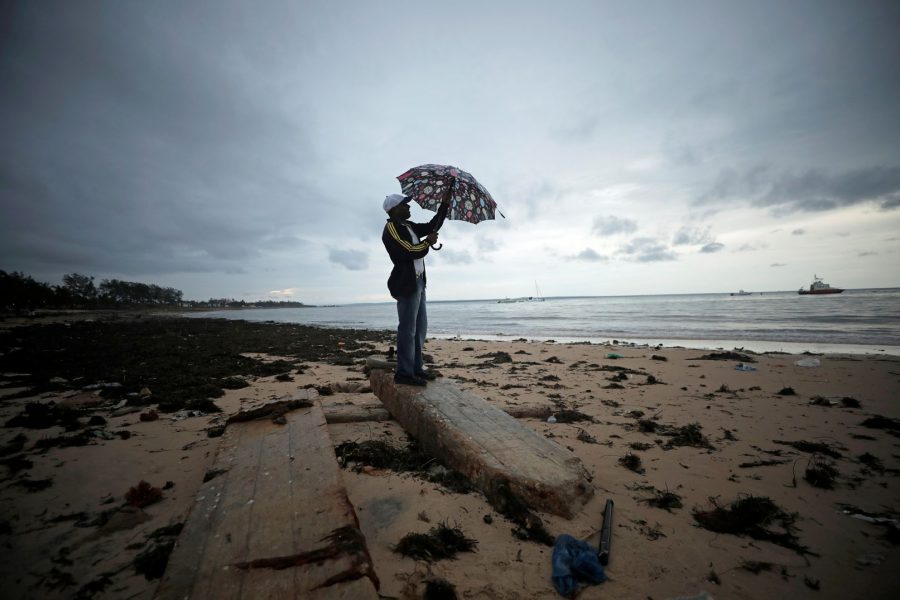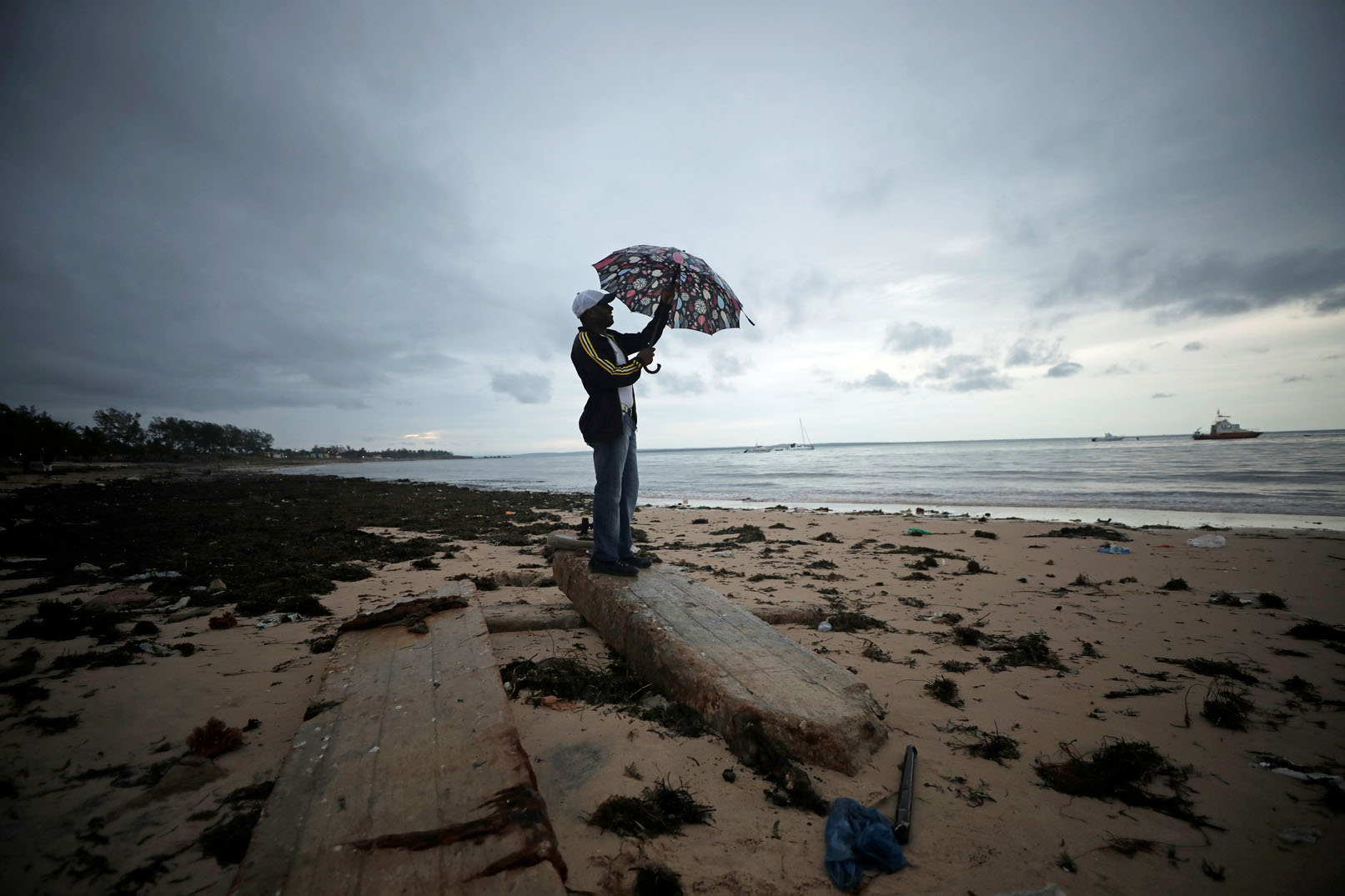
CYCLONE KENNETH: Flooding Starts in Mozambique, Death Toll Rises to 5
Rescuers were moving in to help people trapped by rapidly rising floodwater in the northern Mozambique city of Pemba on Sunday, home to 200,000 people, a United Nations (U.N.) spokesman said, as Cyclone Kenneth dumped more rain on the region. The storm slammed in to the province of Cabo Delgado on Thursday, killing five people, […]

Rescuers were moving in to help people trapped by rapidly rising floodwater in the northern Mozambique city of Pemba on Sunday, home to 200,000 people, a United Nations (U.N.) spokesman said, as Cyclone Kenneth dumped more rain on the region.



The storm slammed in to the province of Cabo Delgado on Thursday, killing five people, and has since then pounded an area prone to floods and landslides with rain, fuelling fears rivers could burst their banks and leave vast areas under water.
Mozambican officials on Saturday urged those living near two rivers in the country’s north to move to higher ground, as Cyclone Kenneth dumped heavy rains and caused some flooding.
It was raining heavily in the provincial capital of Pemba on Sunday, which had until now been spared from severe damage and a number of neighborhoods were now flooded, Saviano Abreu, spokesman for the U.N. Office for the Coordination of Humanitarian Affairs (OCHA) in southern and eastern Africa said.
“There are already people in need of search and rescue,” he said, adding a team was on their way to the neighborhood of Natite, in the city’s north. “We unfortunately are expecting devastating floods in Pemba.”
Aid workers were currently working to assess the scale of the flooding both in Pemba and the surrounding areas, where there were reports of waist-high water, he continued.
Mozambican authorities on Friday urged people living near two rivers in the province, one to the north of Pemba and the other to the south, to move to higher ground as rivers began to fill up and overflow.
Cyclone Kenneth, packing storm surges and winds of up to 280 km per hour, struck Mozambique’s northern coast just six weeks after Cyclone Idai, which flattened the port city of Beira and left entire villages under water. Idai killed 1,000 people across Mozambique, Malawi and Zimbabwe.



Kenneth could over the coming days dump twice as much rain on Mozambique, the World Food Programme has warned, sparking fears the impoverished nation could suffer another bout of deadly floods.
It has already caused huge destruction in some districts of Cabo Delgado, with one U.N. OCHA official saying some villages had been “entirely wiped out”.
“They look like they have been run over with a bulldozer,” Gemma Connell, head of OCHA’s regional office, said.



Michel Le Pechoux, UNICEF deputy representative in Mozambique, said the organization was “deeply worried” that communities in Cabo Delgado – which has no history of cyclones -would not have been prepared for the scale of the storm.
“The soil is saturated with rain and the rivers are already swollen, so the emergency is likely to get worse from flooding in the next few days,” he said in a statement.
With power and communications knocked out in many areas, aid agencies were struggling to assess the extent of the devastation.
Mozambican officials said almost all of the homes on the island of Ibo had been destroyed, while the neighboring mainland district of Macomia had suffered heavy damage.
Trees were ripped from their roots and banks, petrol stations and hotels were also damaged.
Aid workers said some areas, such as Mocimboa de Praia in the north, were also a concern as there had been little communication with them.
The government and aid agencies said 30,000 people had been moved to safety before the storm struck, however it was estimated a total of almost 700,000 were at risk.
(Reporting by Emma Rumney; Editing by Elaine Hardcastle)
